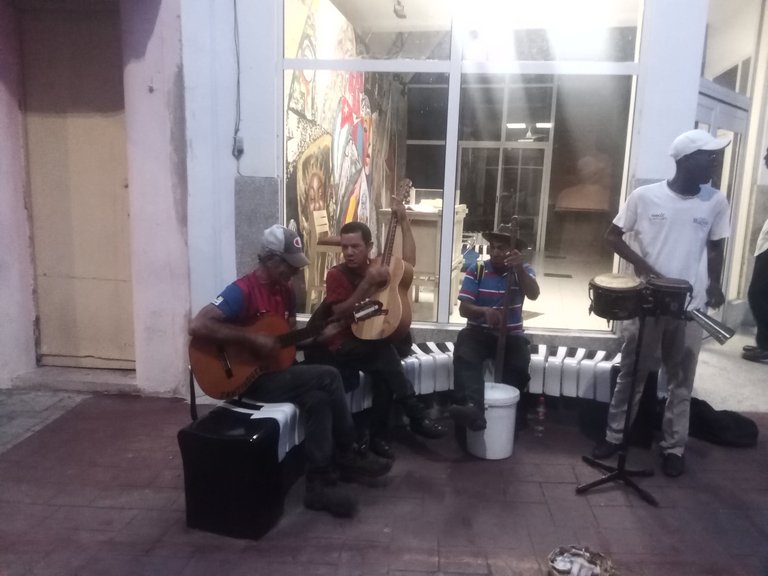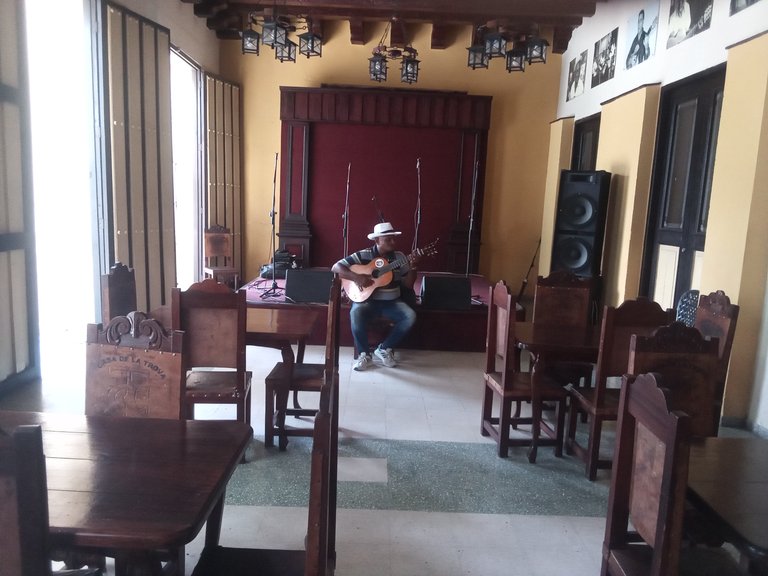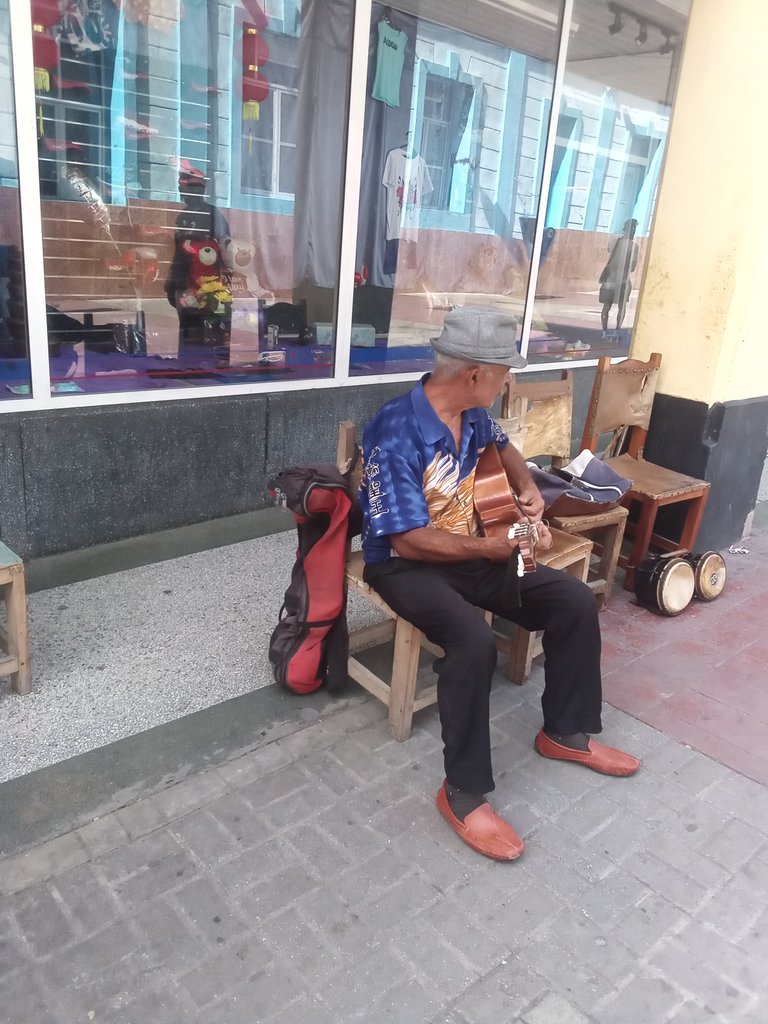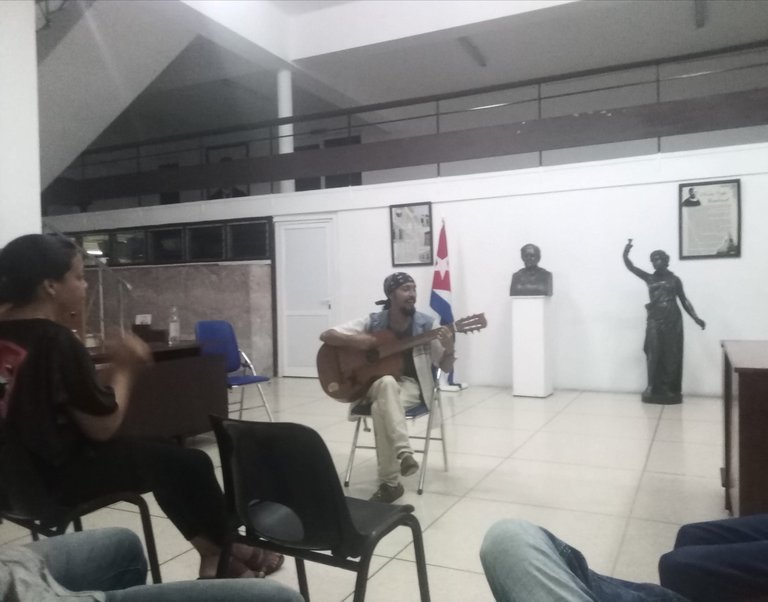Cuban street troubadour (Trova callejera cubana) (En-Es)

The troubadour is a "musical genre" that has traversed Cuban history from colonial times to the present day. The quotes are because more than a genre, the Cuban troubadour are rather a mix of genres ranging from son, guaracha, song, habanera, political song, etc., even modernly mixing with rock, and even some pop songs.
La trova es un "género de musical" que ha atravesado la historia de Cuba desde tiempos coloniales hasta la actualidad. Las comillas están porque más que un género, la trova cubana más bien son una conjura de géneros que van desde el son, la guaracha, la canción, la habanera, la canción política, etc., incluso llegando en la modernidad a mezclarse con el rock, incluso alguna que otra canción pop.
But beyond the great heights reached by the genre, often turning into true classics, such as the Matamoros trio, Sindo Garay, Compay Segundo, Pablo Milanes, Silvio Rodrigue, etc. There is the figure of the wandering troubadour. That figure who does not seek fame or transcendence but rather lives off the music, and that becomes their daily life.
Pero más allá de los grandes encumbrados, que han llevado el género hasta los más altos estándares, llegando muchas veces a convertirse en verdaderos clásicos, como el trío Matamoros, Sindo Garay, Compay Segundo, Pablo Milanes, Silvio Rodrigue, etc. Existe la figura del trovador ambulante. Esa figura que no busca alcanzar la fama, ni trascender, sino vivir de la música, y ese se vuelve su día a día.
Santiago de Cuba, as the cradle of Cuban troubadour, is full of these figures, almost always with a very unique charisma seeking as they say "to be funny" singing their songs to the wind or accosting passersby with their melodies to see if they get enough money for food or a drink, because as another popular phrase says: troubadour without drink, gets stuck.
Santiago de Cuba como cuna de la trova cubana bulle de estas figuras casi siempre portadoras de un carisma muy propio buscando como se dice "caer en gracias" cantando sus canciones al viento o asaltando al transeúnte con sus melodías para ver si así caen los pesos para la comida o un trago, porque como dice otra frase popular: la trova sin trago, se traba.
These figures, for the most part, are self-taught, taught by a father or an uncle who were troubadours themselves and learned from some close figure. This is how what could be considered the most important aspect within this manifestation is maintained, "The tradition." Something that is understandable in another way, there will be no way to hear songs of more than 200 years old, sometimes reverenced in a foreign language, coming from distant lands to listen to these songs or just passing by as a casual listener.
Estas figuras, en su mayoría, son de formación autodidacta enseñada por un padre o un tío que a su vez fueron trovadores y aprendieron de alguna figura cercana. Así se mantienen lo que se podría considerar el aspecto más importante dentro de esta manifestación "La tradición". Cosa que es comprensible de otra forma, no habrá manera de escuchar canciones de más de 200 años alguna, que otra vez reverenciada al idioma del extranjero, que vine de tierras lejanas a escuchar estas canciones o solo pasa por oyente casual.
As this is such an uncertain profession (living from what is done in the day), also taught in such a spontaneous and almost explicit way out of pure love for art, we might be the last generation to enjoy troubadour, at least in this way. Spontaneous street troubadour, really how it was born and for which it was born. Perhaps there will be records or the great figures that emerge over time will continue to elevate the themes. But if one truly wants to enjoy Cuban troubadour, santiaguero, made by those who truly live it, the time is now.
Al ser esta una profesión tan incierta (se vive de lo que se hace en el día), además enseñada de manera tan espontánea y casi que explicita por puro amor al arte, es posible que seamos la última generación que disfrute de la trova, por lo menos de esta forma. Callejera espontánea, realmente cómo nació y para lo que nació. Tal vez queden registros o las grandes figuras que surjan con el tiempo sigan encumbrando los temas. Pero si realmente se quiere gozar de la trova cubana, santiaguera, hecha por quienes realmente la viven, la oportunidad es ahora.
Translated and formatted with Hive Translator by @noakmilo.



Traditional musics are awesome. It pains me that the traditional music of my home town in Africa is gradually fading away because the young generations are not interested in it.
Yes, that is a phenomenon that happens in many parts of the world. I suppose one solution could be to try to bring this type of music to young people beyond just traditional wealth. Show the reasons why they became popular in the first place.